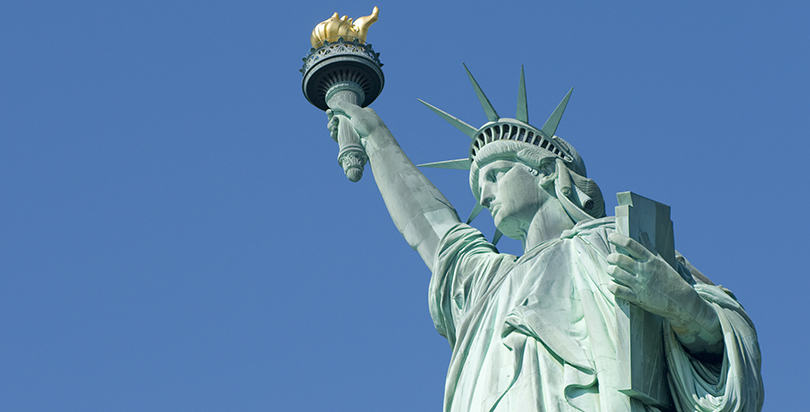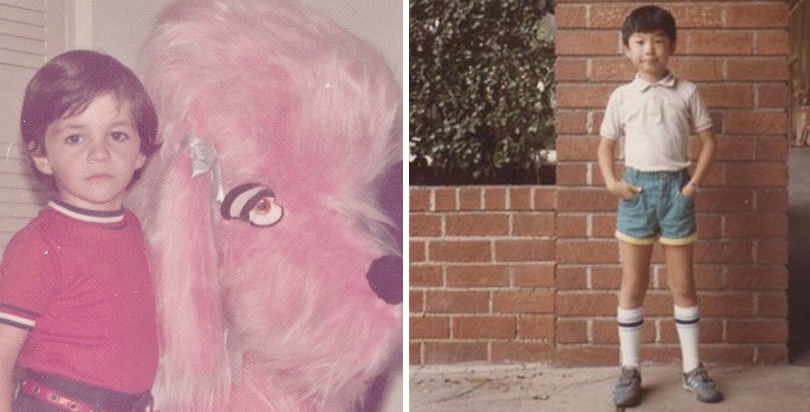“Here at our sea-washed, sunset gates shall stand / A mighty woman with a torch,” reads the
poem at the foot of the Statue of Liberty. With that light, the “Mother of Exiles” tells the world, “ ‘Give me your tired, your poor / Your huddled masses yearning to breathe free / The wretched refuse of your teeming shore / Send these, the homeless, tempest-tost to me / I lift my lamp beside the golden door!’ ”
Emma Lazarus wrote those words more than a century ago to describe a country that could be a light to the world, that was made stronger by immigrants. As immigrant Americans ourselves, we believe fiercely in that vision — and it’s the reason we’re so troubled when we see immigrants living in fear, especially in our schools.
Both of us came to this country as children, brought by parents who struggled and sacrificed to reach a place that would offer us security and opportunity — not least because of the public schools here. And for both our families, America delivered on its promise.
Both of us had to learn everything anew when we came here, from the language to the food to the cultures and traditions. But schools gave us the opportunity to grow and pursue our dreams and ultimately offered us the honor of leading some of the biggest education systems in the country. And, through our work at
Chiefs for Change, we have the opportunity to learn and share lessons with fellow leaders in ways that affect the lives of millions more students throughout the country.
Our lives are examples of what America can be, and we are grateful. But we worry that today, fear is posing obstacles to opportunity for too many children.
(from left) Authors Robert Avossa and Tommy Chang as children
As children freshly arrived to this country, we both knew nervousness and fear. Like so many immigrants, we rushed to assimilate, to learn English and hide our accents and be less different. Not everyone was kind to us. But most were. Our country and our schools let us know that we were welcome. One of us was punished by a gym teacher for not following directions — and then rescued by a first-grade teacher who reached out to take care of a child who didn’t understand English.
Today, however, the atmosphere has changed in many schools. Both of us have witnessed an alarming upswing in incidents of hate and intimidation, based not just on nationality but on race, religion, sexual identity, and more. In immigrant neighborhoods, fear of deportation has grown sharply. Families worry that enforcement is no longer focused just on serious criminals, and they lay plans with cousins and neighbors for what to do if a child comes home and finds a parent detained or deported.
The result is constant anxiety for parents and children, and stress and extra work for teachers, principals, and other school staff. And those concerns have an impact that is very real. Families are keeping their children home from school for fear of getting caught up in enforcement action. Children worried about their safety cannot focus on their studies. We see it in daily attendance, hear about it from teachers, principals, and parents.
That’s not the country we’re meant to be.
This isn’t about your view of immigration policy; it’s about the reality of millions of children growing up in this country. Whatever you think our policies should be at the border, it’s in no one’s interest — and immoral — to have children here who lack an education. It’s not just that schools are legally barred from inquiring about citizenship. It’s the fact that we’re all better off when our kids have the skills they need to be productive, to make a contribution. And we’re all worse off when we drive families away from our schools and into the shadows.
In our own districts, we’ve taken steps to let parents know their rights — most important, that all children in this country are entitled to a public education, regardless of their immigration status, citizenship, race, or other factors. We’ve made key
resources available to educators and families, and made sure school staff have clear guidance if law enforcement officers come looking for students or their information.
But it’s just as important for us as educators to take the seemingly simple step of affirming to our kids that they belong — and we have been surprised and humbled by how much that has mattered to children and families. Both of us have partnered with our fellow educators and our communities to ensure our schools and classrooms are safe and welcoming to all students.
We both know what it is to feel different and separate. But the greatness of our democracy is our ability to make one of many. Nowhere is that more important than in our schools. In this moment more than ever, that begins with telling every one of our children that we love them and we are here for them, today and forever.



;)